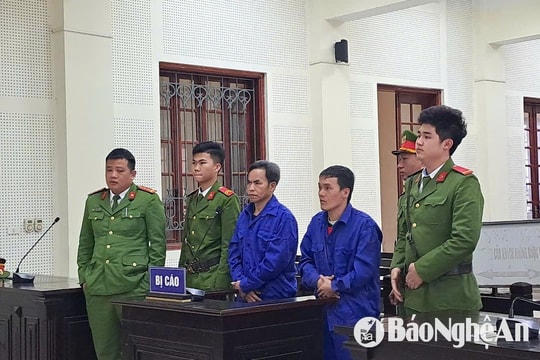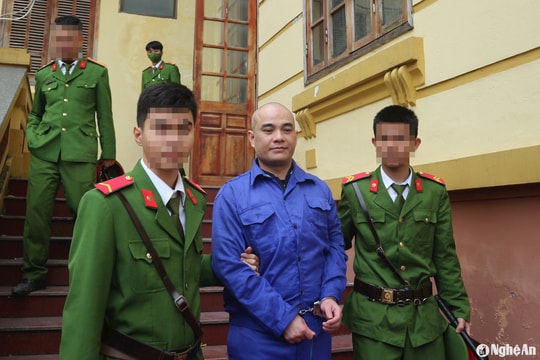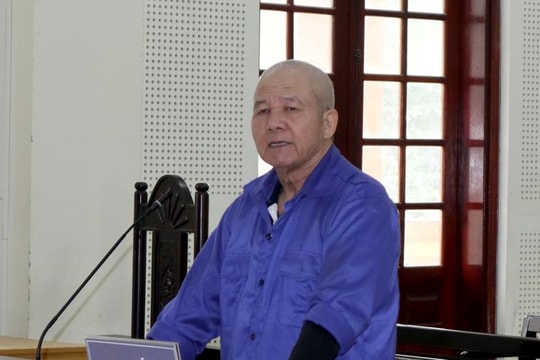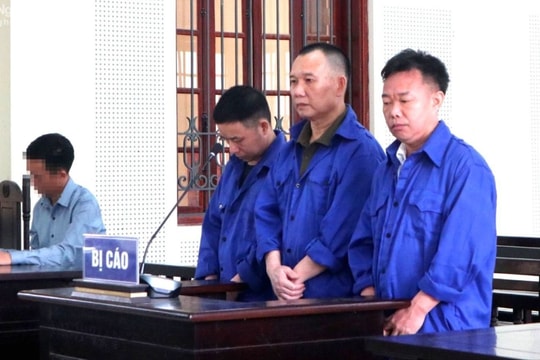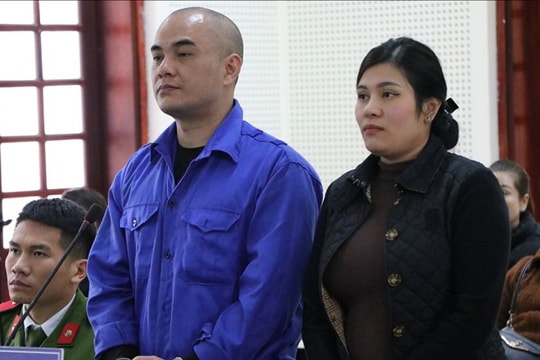From January 1, 2018: Recording audio and video during interrogation and trial
This is a provision of the 2015 Criminal Procedure Code and Circular 02/2017 of the Supreme People's Court, effective from January 1, 2018.
 |
| Regulations require audio and video recording during interrogation of suspects to prevent forced confessions and torture. In the photo: representative of the Supreme People's Court apologizes to Mr. Nguyen Thanh Chan (residing in Bac Giang) - who was wrongly convicted of "murder". During the 10 years in prison serving a life sentence, Mr. Chan always claimed that he was innocent and that he was forced to confess - Photo: TAM LUA |
In addition to the Criminal Procedure Code, nine other codes also took effect from January 1, 2018, containing important contents of some of these laws.
Abolish death penalty for 7 crimes
The Law amending and supplementing a number of articles of the 2015 Penal Code abolishes the death penalty for seven crimes: robbery; production and trade of prohibited goods such as food; illegal possession of narcotics; appropriation of narcotics; destruction of important works, facilities and means related to national security; disobeying orders; and surrendering to the enemy.
At the same time, this law also abolishes the following five crimes: banditry (the 2015 Penal Code stipulates the highest penalty for this crime is death); illegal marriage registration; illegal business; false reporting in economic management; intentionally violating State regulations on economic management causing serious consequences.
New law against torture and torture
To combat forced confessions and torture and to strengthen inspection and supervision of criminal proceedings, the 2015 Criminal Procedure Code stipulates that it is mandatory to record audio or video during the interrogation of suspects at detention facilities or at the headquarters of investigation agencies and agencies assigned to conduct certain investigation activities.
Regarding this issue, Circular 02/2017 of the Supreme People's Court stipulates that the court's audio and video recording of the trial proceedings is carried out in accordance with the provisions of procedural law.
The 2015 Criminal Procedure Code also stipulates that prosecution agencies must notify defense attorneys in advance of the time and place of litigation activities so they can attend; supplement regulations for the People's Procuracy to effectively perform its function of supervising judicial activities; require prosecutors to interrogate when the accused appeals for innocence or when investigating activities are found to have serious violations of the law; and superior prosecution agencies must inspect the litigation activities of subordinate agencies.
The 2015 Criminal Procedure Code also adds a number of principles such as no one being convicted twice for the same crime and complying with the law in investigation activities.
This Code also amends the name of the principle "no one is considered guilty without a court judgment that has come into legal effect" to "presumption of innocence", and the principle of "public trial" to "court trial promptly, fairly, and publicly".
7 subjects received legal aid
According to the Law on Legal Aid, the following 7 subjects are entitled to free legal aid: people with revolutionary contributions, people from poor households, children, ethnic minorities residing in areas with especially difficult socio-economic conditions, accused persons from 16 to under 18 years old, accused persons from near-poor households, and people in one of the cases with financial difficulties as prescribed.
Cases with financial difficulties include: fathers, mothers, wives, husbands, children of martyrs and those who raised the martyrs when they were young; people infected with Agent Orange; the elderly; people with disabilities; people from 16 to under 18 years old who are victims in criminal cases; victims of domestic violence; victims of human trafficking as prescribed by the Law on Prevention and Combat of Human Trafficking; people infected with HIV.
There are three forms of legal aid: participation in litigation, legal advice and out-of-court representation.
Minors "get away" with less serious crimes The 1985 and 1999 Penal Codes only consider criminal responsibility for persons from 14 to under 16 years of age who commit very serious crimes intentionally or commit especially serious crimes. In the 2015 Penal Code, due to the need to fight against crime, this code has stipulated the criminal responsibility of minors at this age in both cases of less serious crimes and serious crimes (for the crime of intentionally causing injury or harm to the health of others, the crime of rape and the crime of kidnapping for the purpose of appropriating property). Now, the Law amending and supplementing a number of articles of the 2015 Penal Code stipulates that people from 14 years old to under 16 years old are only criminally responsible for very serious intentional crimes or especially serious crimes, but limited to 28 specific crimes listed in the Code (such as murder, extortion, illegal drug production, etc.). |
According to Tuoi Tre

.jpg)
